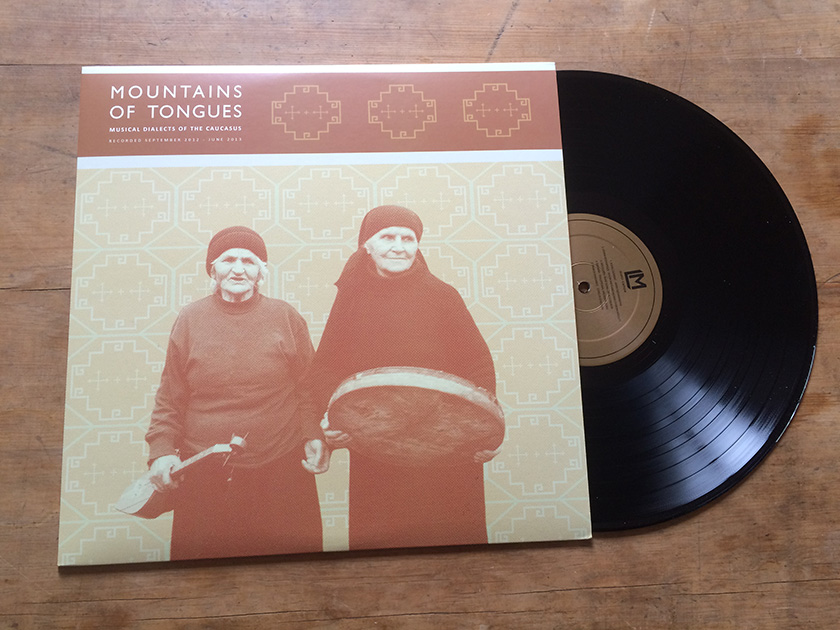
MOUNTAINS OF TONGUES
V/A
Because of its unique geography—situated at the borders of Europe and Asia, between the Caspian and Black seas—the Caucasus has been at the crossroads of multiple empires as well as home to an exceptionally diverse population, resulting in a rich mosaic of history, culture, religion and language. Early Arab travelers referred to the region as the “Mountains of Tongues,” a term that reflected both the geographic and linguistic variety. An incredible number of languages and traditions still exist, but many have yet to be thoroughly documented and are close to disappearing completely.
Since the fall of the Soviet Union the majority of attention the Caucasus has received from the outside world has been as a result of wars in Chechnya, Nagorno-Karabakh, Abkhazia and South Ossetia. The countries of this region have also struggled to forge national identities, a process that has often resulted in the exclusion of smaller folk cultures (ethnic Azeris from Georgia, Kurds from Tbilisi, Avars and Lezgis from Azerbaijan, or Molokans in the South Caucasus, all groups that don’t fit the category of “national” folk music).
Mountains of Tongues: Musical Dialects from the Caucasus includes recordings of songs in languages that have rarely been caught on tape (Lezgi and Batsbi), instruments that only exist in extremely small numbers (the Tushetian chianuri, of which there are only two, and the agach komuz from the remote territory of Dagestan) and performances from a variety of underrepresented ethnic minority communities. These musicians, whether they recognize it or not, are guardians of the distinct musical cultures of the Caucasus, a region whose many traditions are still relatively unknown to the rest of the world.
The Sayat Nova Project is a non-profit group with the goal of preserving and promoting the musical dialects of the Caucasus. The recordings on this album were made between September 2012 and June 2013 in villages, towns and cities across the South Caucasus. Members of the project recorded more than 50 musicians playing a wide variety of instruments and singing in ten different languages.
Mountains of Tongues presents the music of the Caucasus without regard to political borders. Through the inclusion of recordings by Armenians, Azerbaijanis, Georgians, Chechens and many others ethnicities, it represents this region’s unique traditions and shared histories and emphasize the diversity that exists within these “mountains of music.”
MEDIA
2016 Albuquerque, New Mexico
LM Duplication
